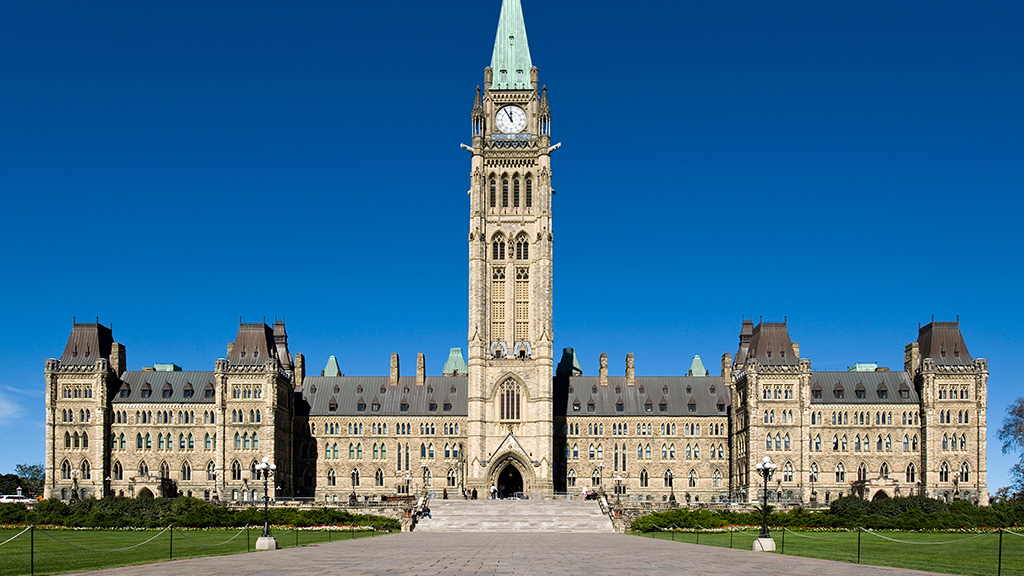Prime Minister amends Canada Summer Jobs Program to employ more students
The changes will provide 70,000 new jobs for students
 Supplied - W. Lloyd MacKenzie - Flickr
Supplied - W. Lloyd MacKenzie - FlickrThere will be 70,000 more full-time and part-time jobs available for students through the Canada Summer Jobs Program due to a new announcement from the federal government.
Prime Minister Justin Trudeau announced several changes to the 2020 Canada Summer Jobs Program as part of the federal government’s response to COVID-19 at a press conference on April 8. The program provides wage subsidies for non-profit, public sector, and small business organizations to offer employment to students.
The changes include an increase to the wage subsidy to create an additional 70,000 jobs available for students. The length of time students are employed through the program is extended from August 28, 2020 to February 28, 2021. Additionally, employers are now allowed to hire students on part-time employment contracts. The federal government is spending $263 million to initiate these changes.
Businesses offering employment through the Canada Summer Jobs Program will receive up to 100 per cent of the provincial or territorial minimum hourly wage subsidized for each employee.
The changes announced today are only “the first step” of the federal government’s response to COVID-19 and helping students specifically.
“I want to be clear, we will be doing more,” he said.
The prime minister said the COVID-19 pandemic is affecting students and small businesses in significant ways, requiring the government to change the Canada Summer Jobs Program to meet both of their needs.
He said the changes to the temporary employment program will ensure youth stay connected to the labour market, gain valuable work experience, save money for their future, and find quality jobs in safe work environments.
“In this economic climate it is hard for people of all ages to find work,” Trudeau said. “But young people are especially vulnerable. They are new to the workforce so they don’t have a lot of money set aside for this kind of situation. At the same time, they need work experience to secure their next job and money to cover their living expenses and help with tuition for the rest of their year.”
“Our government is also encouraging all businesses who have been impacted by COVID-19 to make adjustments so work can continue,” Trudeau added.
He reinforced that all Members of Parliament will be asked to reach out directly to community groups, non-profits, and small businesses who did not apply to be part of the Canada Summer Jobs Program to ensure they employ students.
He clarified the reason the length of time students are employed through the program is being extended is to ensure quality employment opportunities for students exist and are accessible even in this global pandemic.
“We will also extend the timeframe for job placement until the winter because we know that some jobs will start later than usual,” Trudeau said. “And because many businesses have had to scale back their operations, they will be able to hire students part-time.”
This marks the second student-specific announcement of COVID-19 response measures. On March 18, Trudeau introduced a six month grace-free period for federal student loans due to the global pandemic.
Federal student advocacy applauds first step but says “much more” is needed
Adam Brown, chair of the federal student lobby group called the Canadian Alliance of Student Associations (CASA) acknowledged that the expansion of the Canada Summer Jobs Program is a “welcome” development, but will only provide an additional 70,000 jobs.
Brown, also the University of Alberta Students’ Union vice-president (external), said those jobs will be inaccessible to some, like international students.
“This was a good first step towards student-specific support in the COVID-19 situation,” he said. “I think it is really important that the federal government recognizes that students are being impacted economically and socially differently.”
“Supporting 70,000 jobs is good,” he added. “But the other things that are important is that employers are willing to create those positions and the recognition that those jobs are not available for all students in Canada.”
CASA is continually in contact with the federal government, Brown said. In his opinion, Ottawa has been “receptive” to their asks and overall advocacy. He said he “eagerly” awaits what the next student aid announcements will be from the prime minister.
In an ideal situation, Brown said CASA would want a post-secondary student-specific aid package modelled like the COVID-19 Canada Emergency Response Benefit. The advocacy group has heard complaints from students that granting agencies are freezing financial support and not offering as many scholarships as well.
“We want to make sure student grant funding is still there… and that students who may not be able to work can get financial support in a targeted benefit package that is ongoing so they can continue their studies uninterrupted.”




